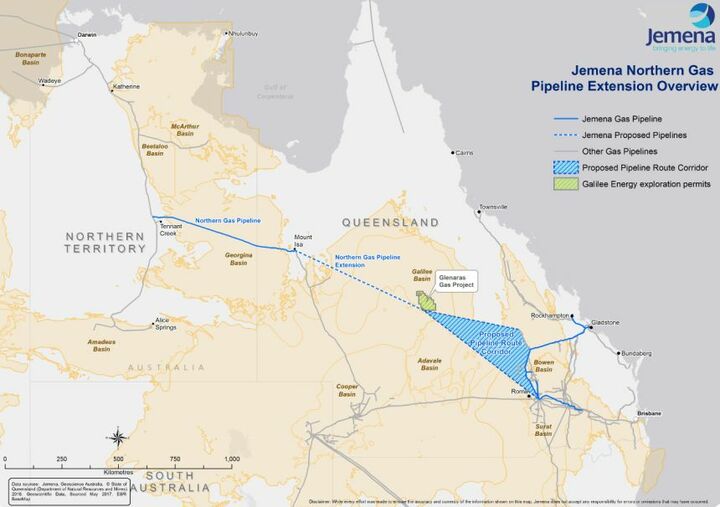Horizon Oil boss Richard Beament wants to rebalance the company's traditionally oil-heavy portfolio by ramping up gas production. He says Horizon must evolve with the times and public sentiment while reassuring investors it's still committed to its profitable oil assets. Its US$30 million deal—alongside Matahio Energy—for a 75% stake in ExxonMobil's Thai subsidiary marks Horizon's south-east Asian debut and pushes it closer to a 50-50 oil and gas split.

"Both of the Thai gas fields are expected to really drive longer-term cash flow generation while supporting a bit of a preference for gas," Beament said.
"We're not against oil – the margins are very strong – but gas is increasingly seen as central to the energy transition. Rebalancing the portfolio in that direction just makes sense."
YOU MIGHT ALSO LIKE
Horizon is acquiring stakes in two onshore gas fields – the Sinphurhorm and Nam Phong fields –one to be operated by PTT Exploration and Production (PTTEP) and the other by Matahio Energy. The deal adds approximately 2000 barrels of oil equivalent per day to Horizon's production, pushing its total to around 6500 barrels per day once the deal closes – roughly evenly split between oil and gas.
Rebalancing without retreating
Despite the shift, Beament is careful not to signal a withdrawal from oil. Horizon's producing assets in Block 22/12 offshore China and the Maari field in New Zealand continue to generate strong cash flows. A licence extension application for Maari is currently before New Zealand authorities, which the company hopes will extend the field's life beyond 2030.
"There's no neglect here," Beament said. "In China, we're continuing with infill drilling, workovers, and production optimisation.
"In New Zealand, we're focused on a life extension. These are still valuable assets that support the business."
With oil prices expected to decline modestly while LNG prices inch upward, Horizon views its gas-heavy acquisitions as a hedge. Mereenie – the company's Australian gas asset in the Northern Territory – has long-term sales contracts in place, ensuring revenue stability.
"In some respects, Mereenie is a hedge against oil price volatility," Beament said.
"The gas is already largely sold under long-term agreements, mostly to the Northern Territory government. That gives us certainty of cash flow."
Domestic gas play
Beament says Horizon is committed to supplying the domestic market. Mereenie currently delivers about 40% of the Northern Territory's gas supply. With the Northern Gas Pipeline to the east coast currently closed due to local gas shortages, there's pressure to maintain domestic supply.

"There's not a huge amount left for the domestic market once the LNG contracts are fulfilled," he said.
"The NT government is keen to see us continue developing our fields, especially given the delays in proving commercial viability in the Beetaloo Basin."
Horizon, which holds a 25% stake in Mereenie, has recently drilled two successful infill wells that increased production by over 20%. The company is now eyeing contingent resources in the Stairway Formation – a gas-bearing sandstone reservoir that overlies the main producing Pacoota formation.
"The contingent resources alone could match our current reserves position in Mereenie," Beament said. "If we can crack that, it's quite exciting," he added.
Not just chasing gas
Despite the focus on gas, Beament is cautious about going "over the top" with rebranding or repositioning Horizon as a gas-only company. Asked whether a name change was on the cards, he downplayed the idea.
"It sort of makes sense, but it's not something our investors raise with me," he said. "It's not a focus."
Horizon's strategy hinges on being a specialist non-operator with minority stakes – typically around 25% – in high-quality assets operated by experienced partners. This model allows it to manage risk and cash flow while maintaining influence in joint ventures.
"We don't pretend to be operators," Beament said.
"We have a focused technical team and work closely with our partners to unlock value."
Beyond Thailand
Looking ahead, Horizon is focused on bedding down the Thai acquisition, but Beament says the company remains active across its legacy assets.
"In China, we're working with the operator on maturing another drilling program. At Mereenie, we're reviewing the results of the recent wells and planning follow-up activity.
"And in New Zealand, we're hopeful of hearing back on our extension application soon," he said.
Beament expressed optimism due to a more constructive environment for hydrocarbon developments in Australia's closest neighbour.
"There's a more favourable political environment now in New Zealand," he said.
"I think there's a growing recognition that while the nation has ambitious green targets, it remains deeply reliant on hydrocarbons – whether that's for transporting people, moving livestock, or producing milk. You can't outsource your emissions and still claim to have energy security."
With a diversified portfolio spanning Australia to Southeast Asia, Horizon is positioning itself to ride out commodity price swings, expand its foothold in gas, and sustain oil production – all while continuing to generate returns for shareholders.
"We're bulking up across the board," Beament said.
"Diversifying, balancing the mix – that's how we deliver the cash flow we need to keep paying our distributions. And that remains our core strategy."























